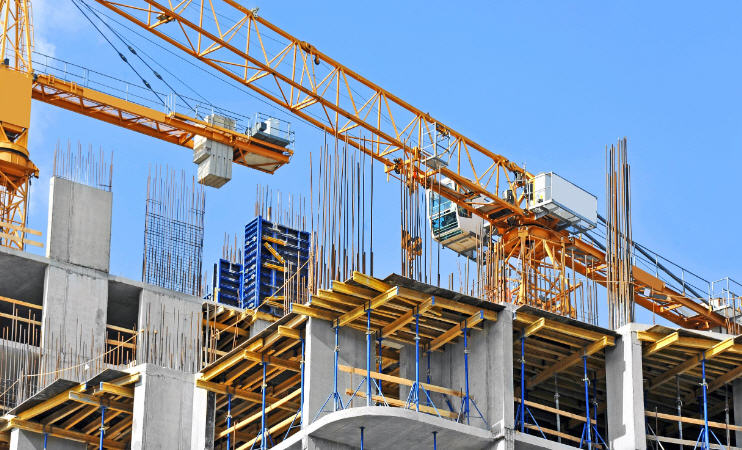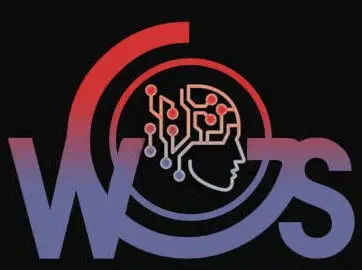A chatbot for the construction industry can address several business problems, improve client satisfaction, and streamline operations. Here are the key problems it can solve:
1. 24/7 Client Support
– Basic / Intermediate
Problem: Clients often have questions outside of business hours, such as project status, timelines, or budget updates.
Solution: A chatbot can provide instant answers to common queries, ensuring clients get the information they need anytime.
2. Project Updates and Communication
– Basic / Intermediate
Problem: Clients frequently ask for updates on their project’s progress or changes.
Solution: A chatbot can provide real-time updates and share project milestones or reports.
3. Appointment Scheduling
– Basic / Intermediate
Problem: Coordinating meetings between clients and project managers can be inefficient.
Solution: A chatbot can integrate with calendars to schedule consultations, send reminders, and reschedule appointments.
4. Lead Generation and Qualification
– Basic / Intermediate
Problem: Construction companies may struggle to capture and qualify leads effectively.
Solution: A chatbot can engage website visitors, collect their information, and pre-qualify leads based on their project requirements.
5. Document and Plan Management
– Basic / Intermediate
Problem: Managing and sharing construction plans, permits, and other documents can be cumbersome.
Solution: A chatbot can help clients upload, access, and download project documents securely.
6. Feedback and Surveys
– Basic / Intermediate
Problem: Collecting feedback from clients can be inconsistent and time-consuming.
Solution: A chatbot can automate feedback collection and surveys, providing valuable insights for improvement.
7. Multilingual Support
– Basic / Intermediate
Problem: Construction companies serving diverse populations may face language barriers.
Solution: A chatbot can offer multilingual support, enabling communication in the client’s preferred language.
8. Reducing Administrative Overhead
– Basic / Intermediate
Problem: Administrative tasks (e.g., answering FAQs, scheduling, reminders) consume significant time.
Solution: A chatbot can automate routine tasks, reducing the workload on staff.
9. Improving Client Retention
– Basic / Intermediate
Problem: Clients may feel neglected if communication is slow or inconsistent.
Solution: A chatbot can maintain consistent engagement, provide timely updates, and collect feedback.
10. Competitive Advantage
– Basic / Intermediate
Problem: Construction companies face increasing competition and need to differentiate themselves.
Solution: A chatbot can position the company as tech-savvy and client-focused, attracting more clients.
11. Data Analytics and Insights – Intermediate / Advance
Problem: Companies may lack actionable insights into client behavior and preferences.
Solution: A chatbot can collect and analyze data on client interactions, helping improve services and make data-driven decisions.
12. Onboarding New Clients
– Basic / Intermediate
Problem: The onboarding process for new clients can be lengthy and confusing.
Solution: A chatbot can guide clients through the onboarding process, ensuring all necessary information is collected.
13. Regulatory and Compliance Information
– Basic / Intermediate
Problem: Clients may have questions about building codes, permits, or zoning regulations.
Solution: A chatbot can provide information about local regulations and compliance requirements.
14. Emergency Notifications
– Basic / Intermediate
Problem: In case of emergencies (e.g., site accidents, weather delays), clients need to be notified quickly.
Solution: A chatbot can send instant notifications and provide instructions for emergencies.
15. Resource and Material Queries
– Basic / Intermediate
Problem: Clients may need information about the materials being used or the availability of resources.
Solution: A chatbot can provide details about materials, suppliers, and resource availability.

Here are three ready-to-implement chatbot use cases for construction companies that can generate leads, streamline operations, and improve client communication with minimal setup:
1. Instant Bid Requests & Project Qualification
Use Case:
Potential clients message via website chat/WhatsApp:
“Need a quote for a 2,000 sq ft home build”
“Looking for kitchen remodelers in [Location]”Chatbot:
Asks key questions (project type, timeline, budget range)
Provides ballpark price ranges (“Our average kitchen remodel starts at $45K”)
Books consultations directly to your calendar
Immediate Benefit: Qualifies leads 24/7 and captures hot prospects after hours.
Example Flow:
*”Let’s start your estimate! Choose project type:
New construction
Renovation
Commercial buildout
→ “For 3-bedroom homes, we typically quote 175−175−225/sq ft. When would you like to meet our project manager?”
2. Subcontractor/Vendor Onboarding & Compliance
Use Case:
Chatbot automates:
Subcontractor pre-qualification (“Upload your license and insurance docs here”)
Safety training reminders (“Your OSHA 30 certification expires next month”)
Daily check-ins (“Report jobsite hazards via chat”)
Immediate Benefit: Reduces paperwork by 60% and maintains compliance.
Example Workflow:
*”New vendor setup:
Submit W-9
Upload COI
Complete safety quiz
(All via mobile-friendly forms)”*
3. Project Status Updates & Change Orders
Use Case:
Clients message:
“Is framing complete at Maple St.?”
“We want to add recessed lighting”Chatbot:
Pulls real-time progress from your PM software (Procore, BuilderTrend)
Initiates change order requests with digital signatures
Sends photo updates from the jobsite
Immediate Benefit: Cuts “status update” calls by 80% and accelerates approvals.
Example Script:
*”Maple St. Project Update (Week 6):
✅ Framing passed inspection
🚧 Electrical rough-in starts Monday
❓ Need to approve backsplash change?
View photos
Approve change
Schedule walkthrough”*
Why Construction Firms Need This Now:
Competitive Edge: 85% of clients expect instant responses (JBKnowledge Report)
Risk Reduction: Documents all client communications for disputes
Labor Shortage Solution: Automates admin tasks for stretched teams.

Here’s a compelling, data-driven case for why construction companies should implement chatbots to reduce costs and improve efficiency, with concrete numbers to drive adoption:
The Business Case for Construction Chatbots
1. 24/7 Project Status Updates & Client Communication
65% of contractor-client communications are repetitive (schedule updates, material requests) (Construction Dive)
Cost per interaction: 0.25(chatbot)vs0.25(chatbot)vs15 (project manager call) – 98% savings
Automated daily reports reduce status meeting time by 40%
2. Instant Workforce Management
Chatbots handle 70% of routine HR queries (timesheets, PPE requests, pay stubs)
Reduces HR admin time by 25 hours/week = **37,500/yearsaved∗∗(assuming37,500/yearsaved∗∗(assuming30/hr HR rate)
Safety compliance reminders decrease OSHA recordables by 20% (NSC data)
3. Streamlined Material Ordering & Inventory
AI-powered reordering prevents 15% of material shortages that cause delays
Instant supplier price checks save 5-7% on material costs (ABC Construction Economics)
Equipment check-out automation reduces idle time by 30%
4. Faster Bidding & Proposal Generation
Qualifies RFPs 5x faster by auto-analyzing project specs
Generates preliminary bids in 15 minutes (vs 4 hours manually)
Increases bid submission rate by 35% (Dodge Data & Analytics)
5. Enhanced Safety & Compliance
Automated safety briefings ensure 100% crew compliance
Real-time incident reporting cuts documentation time by 75%
Multilingual safety alerts reduce miscommunication risks
ROI Breakdown for a Mid-Sized Contractor ($10M Revenue)
| Metric | Without Chatbot | With Chatbot | Impact |
|---|---|---|---|
| Annual Admin Costs | $350,000 | $245,000 | $105K saved |
| Project Delays | 12% of projects | 8% of projects | $240K saved |
| Bid Win Rate | 22% | 30% | +$800K revenue |
| HR Efficiency | 60% | 85% | 25% productivity gain |
| Safety Incidents | 5/year | 3/year | 40% reduction |
